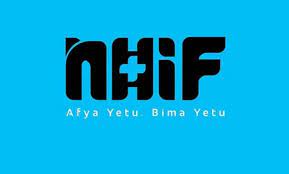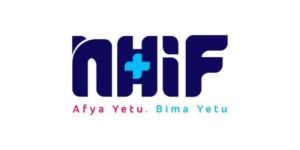According to reports members of the National Health Insurance Fund (NHIF) will now be able to gain direct access to private owned pharmacies and consultant doctors. It is believed that the move is intended to broaden the available treatment options, while also reducing the costs.

The Chief Executive Officer (CEO) of the National Health Insurance Fund (NHIF); Peter Kamunyo made it known that the board is finishing up the roll out of the new model which will provide all National Health Insurance Fund (NHIF) members with more options with regards to accessing healthcare and also reduce the money spent on claims payments.
As it stands, the National Health Insurance Fund (NHIF) caters for the payment of services via hospitals which have been accredited. As a result consultants who operate in private pharmacies and clinics, were locked out.
This led to National Health Insurance Fund (NHIF) members having to cater for the cost of purchasing medicines and using consultant doctors who work at hospital which were not National Health Insurance Fund (NHIF) qualified.
According to Dr. Kamunyo, “Right now, we can only reimburse hospitals and that has been a problem. Why don’t we have consultants who charge less, we can negotiate with them because the Act was that we could only reimburse hospitals.”
The Chief Executive Officer (CEO) added that, “Now we will be more creative in cost containment, adding quality and value to our members. The [NHIF] team is working very hard to ensure we get there because this is one of the big-ticket items [needed] to achieve quality and cost containment.”
Read Also: How To Pay For NHIF Via M-Pesa And Check Your Payment
The change is coming after other changes to the National Health Insurance Fund (NHIF) (Amendment) Act, 2022 which now make it possible for the Insurer to contract individual healthcare professionals directly so as to provide preventive care, consultancy, as well as other services.
The National Health Insurance Fund (NHIF) had in the previous law, been restricted to private, public and faith based hospitals for outpatient and inpatient services.
The National Health Insurance Fund (NHIF) will now be able to negotiate the actual payment rates with private pharmacies and clinics as it looks to adopt the business model currently utilized by insurance companies.
The National Health Insurance Fund (NHIF) did however not reveal the details of how it’s members will be able to gain access to the planned service.
Read Also: How To Register For The National Hospital Insurance Fund (NHIF)
Official data revealed that as at December of 2021 the East African nation of Kenya had a total of 4,285 registered pharmacists and 13,376 registered doctors.

The National Health Insurance Fund (NHIF) believes that its large membership of 13.8 million will make it possible for it to be able to negotiate lower fees than the current market rates.
In the year which ended in June of 2021 the National Health Insurance Fund (NHIF) which is an Insurer backed by the Kenyan government, spent a total of 54 billion Kenyan Shillings on claims. This represents a total of ninety one (91) percent of the 62 billion Kenyan Shillings it received as premiums.
The National Health Insurance Fund (NHIF) made it known via a brief that, “Currently, the drivers of costs in the health sector are medication and diagnostics.”
The National Health Insurance Fund (NHIF) estimated that the drugs made up between thirty (30) percent to seventy (70) percent of the costs of treatment, thus becoming the necessity of discounting fees and prices from consultant doctors.
The Chief Executive Officer (CEO) of the National Health Insurance Fund (NHIF); Dr. Peter Kamunyo stated that the deals with drug manufacturers and chemists will become enhanced versions of a contract that the National Health Insurance Fund (NHIF) signed with Janssen Kenya which is a company owned by American pharmaceutical giant; Johnson & Johnson.
Read Also: How To Check Your NHIF Statement Online
The National Health Insurance Fund (NHIF) deal with Janssen Kenya makes it possible for patients of prostate cancer to receive ten (10) packs of Abiraterone acetate at 600,000 Kenyan Shillings which is half of the current market price of 1.2 million Kenyan Shillings. Abiraterone acetate, is a prescription drug.
The National Health Insurance Fund (NHIF)’s Chief Executive Officer (CEO) made it known that, “We have negotiated with key pharmaceutical companies and we are going on and this will be more enhanced when we start a pharmacy benefits management.”
The Kenyan government funded Insurer: National Health Insurance Fund (NHIF) is aiming to protect its cash reserves and also contain its costs given its mandate of becoming a leader in quality and affordable healthcare to all Kenyans under the Universal Health Coverage (UHC).
Read Also: How To Find Out Your NHIF Number
The National Health Insurance Fund (NHIF) is an integral part of the Kenyan government’s Universal Health Coverage (UHC) where the membership is mandatory to all Kenyans aged eighteen (18) years and above.
The National Health Insurance Fund (NHIF) has been faced with increased cases of fictitious claims and the selections that hit as high as 16.5 billion Kenyan Shillings per year and resulted in added pressure on its finances as the Insurer now spends more than ninety (90) percent of its premiums on the settlement of claims.
The National Health Insurance Fund (NHIF) scheme has now increased its rates of reimbursement to contracted health facilities by as much as twelve (12) percent. This is more than twice the number of surgical operations that it covers. It also expanded the oncology benefits for cancer patients, becoming a further indication of how integral it is to contain costs.
How informative was this particular article? Are there any other news topics, categories, or How To topics, that you would like us to write on? Feel free to reach out to Nexbit KE in the comment section.

